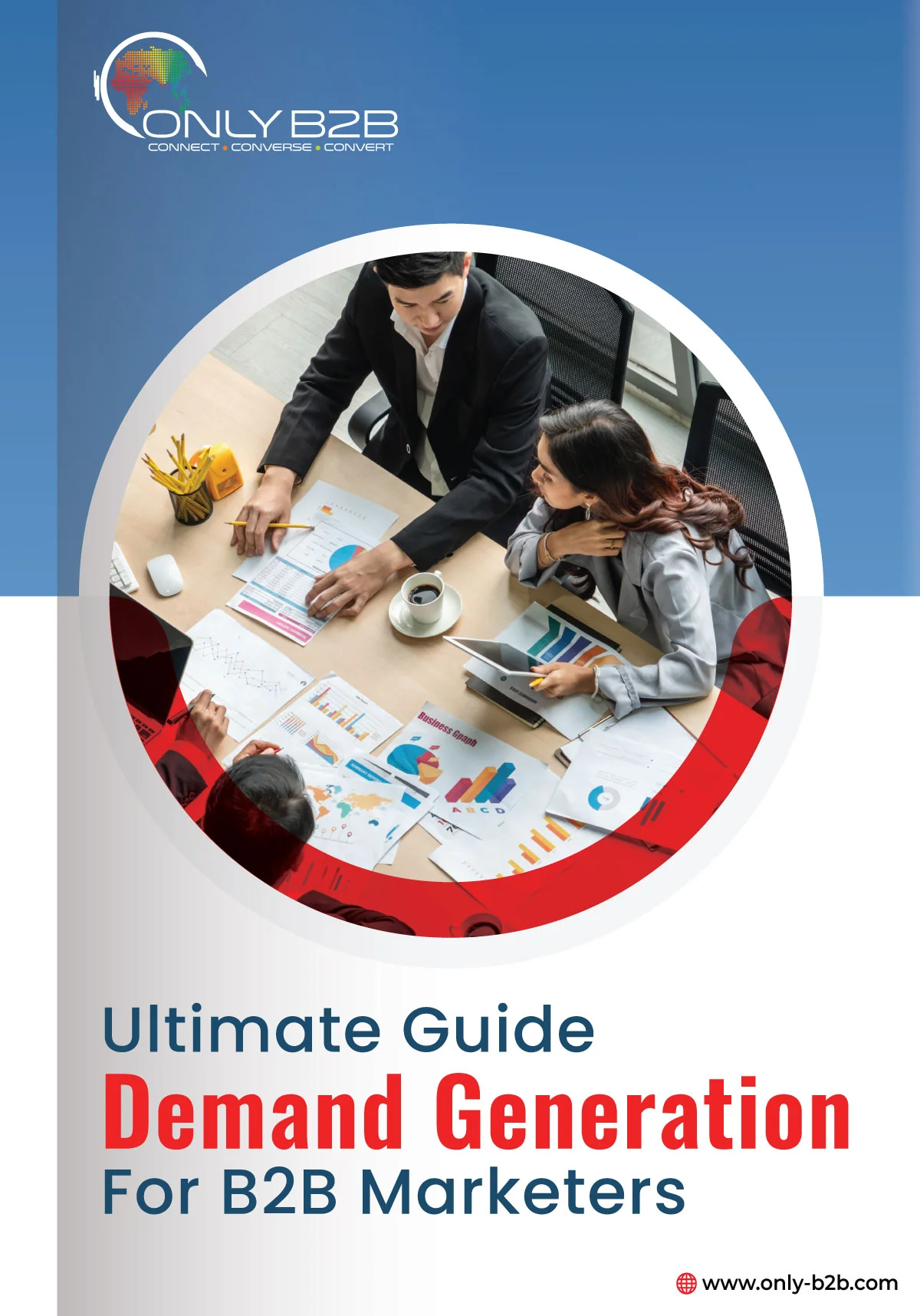
Creating a successful demand generation plan is not easy.
But then if it were, every B2B marketer would be driving full-funnel results remarkably.
The top B2B marketing players are cutting down the complexities of B2B demand generation strategies in 2024 that cover different marketing targets, channels, and lead sources.
If any aspect of your demand generation plan falls short, you won’t achieve the desired results, encountering b2b demand generation pitfalls along the way.

Do you think you can drive more deals that are attributed to marketing without good content?
If you are using incorrect lead sources, will you be able to hit your metrics?
We don’t think so!
We have interacted with numerous B2B marketers who struggle to transit to drive results. These interactions have made us aware of the most common pitfalls that trouble every B2B marketer virtually who is creating a demand generation plan. Even your competitors fall into these pitfalls. When you avoid these common problems you can run a fool-proof demand generation campaign.
5 Common Demand Generation Pitfalls to Avoid
Table of Contents
Problem #1: Deficient Messaging Map
If your content isn’t able to attract the right leads or nurture your marketing qualified leads effectively in your pipeline opportunities, chances are that you are facing one of the most common pitfalls of the deficient messaging map.
Must Read: Quick Guide: Retain Customers with Demand Generation Strategies
You may have program objectives, buyer persona profiles as well as a content strategy but you have nothing to link them together. It might also be possible that you have several content assets at the top of your marketing funnel, but the middle or the bottom of the funnel might be weak.
You may have, in this case, never taken out the time to connect your resources and your key messages at each stage of your buyer journey.
If you are facing this problem, you need a messaging map, that is, a document that can connect your content and key messages to all your relevant personas, accounts and buying stages. This should address consideration, awareness and decision phases, in the least, as well as the buyer’s problems and priorities at every stage of the journey.
With an efficient messaging map, B2B marketers can:
- Create accurate content to fill in the missing gaps and assets.
- Determine the strengths and weaknesses of the content as well as your campaigns.
- Fine-tune and repurpose the assets that are already existing to meet the needs of customers and prospects.
Problem #2: Limited Marketing Channels
Numerous demand generation marketers are using a combination of paid and owned efforts on online and offline channels for generating and nurturing their leads. It is very uncommon that we stumble upon a program that does not use the combination of inbound marketing, social media, third-party lead generation, digital, live events and more.
This is where your demand generation can mostly go wrong: the lack of oversight done by B2B marketers at the top of their marketing funnel.
There isn’t a shortage of lead sources but marketers are unable to check where their results are derived from. B2B marketers may also not be able to compare marketing channels effectively, without time-consuming data.
Must Read: 15+ Demand Generation Statistics that Every Business Should Know
In this digital era, you cannot get away with just one marketing channel. Even the organizations that are present in the narrow verticals are unable to fill their sales pipeline with only inbound marketing leads. If this is the case, chances are that you need to depend on live events, emails, and co-sponsored webinars and so on.
However, if you want to maximize the performance of your campaigns, you need to have a solution that can provide you with automation and visibility at the top of the marketing funnel. This allows you to manage the number of growing channels for lead generation. This is the only way to avoid this most common problem.
Problem #3: Neglect Top Funnel Strategy
When you are pinned down by the inefficiencies at the very top of the funnel, it is hard to scale your demand generation plan.
Demand generation marketers are marketing throughout the sales and customer lifecycle. There are not limited to marketing at the top of the funnel anymore. Very often, the programs recognize the need to spend some time in the middle as well as the bottom of the funnel.
Best class marketers, however, use technology to create top-funnel automation. The right software automates the management of the campaign, integrates top-of-funnel efforts with the middle and bottom of funnel activities and centralizes your data sources.
Must Read: Top 6 Demand Generation Strategies Which Work!
Problem #4: Lead Quality Ignorance
Imagine the number of hours that are wasted in just trying to manually standardize, validate, de-duplicate and upload the bad leads.
You cannot simply dismiss the third-party source of the leads that occasionally provide you with bad leads.
Demand marketers manage to dodge this problem safely and usually turn to technology to solve this same problem. The best organizations adopt software solutions that automate the review of lead quality and route new leads to the right sales representative or nurture tracks.
Problem #5: Inadequate Performance Measurement
If you cannot measure something, you cannot improve it.
Demand generation is a data-informed approach for B2B marketing. Metrics are the medicine for improvement and effective alignment between sales, marketing, and customer success teams. Marketers know the real value of KPIs for demand generation, like average deal size, funnel conversion rates and cost per lead.
Eliminating All Barriers of Demand Generation Plan Success
The most effective B2B marketers aren’t superheroes, no matter what you think about them. In many cases, they just think smartly about the ways and places to spend their time. Creating automation in your time consuming and error-prone processes will enable you to spend more time on thinking and implementing the demand generation plan. These 9 demand generation books every marketer should read.



